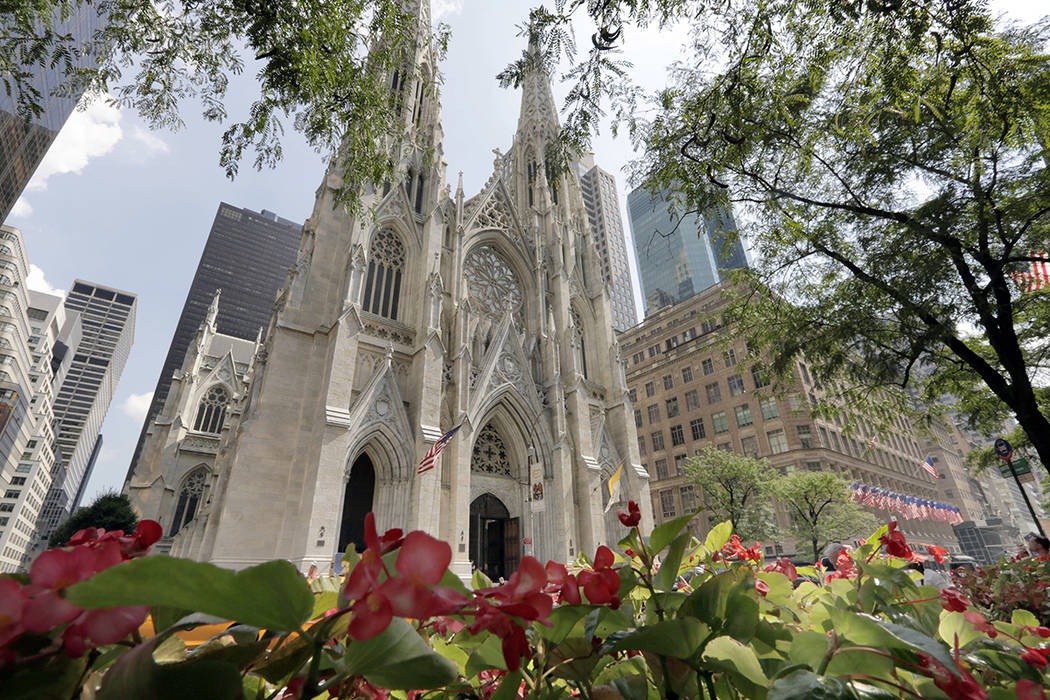Catholic archdiocese in NY sues insurers over future abuse claims
NEW YORK — The Roman Catholic Archdiocese of New York has sued more than two dozen insurance companies, seeking to compel them to cover claims filed by people who say they were abused by clerics.
Church officials anticipate that numerous alleged abuse victims will sue under New York’s Child Victims Act, which gives victims a year to file claims alleging sex abuse that were previously barred by the statute of limitations.
The archdiocese, the nation’s second-largest after Los Angeles, says in its lawsuit filed Friday in Manhattan state Supreme Court that many of its insurers “intend to dispute, limit, or deny coverage” for abuse claims filed in response to the Child Victims Act, which Democratic Gov. Andrew Cuomo signed into law in February.
“The Archdiocese of New York has filed suit seeking to hold insurance companies to the policies they issued, and for which it paid premiums,” archdiocese spokesman Joseph Zwilling said in a statement.
The one-year window to file claims under the new state law starts in August, but the archdiocese says people who allege they were abused by priests decades ago have already begun to file actions against the archdiocese.
The lawsuit says that the archdiocese notified Insurance Co. of North America, a subsidiary of Chubb Group of Insurance Cos., of a lawsuit filed by a man who says he was abused by two clergymen in the 1970s. Chubb responded that it wouldn’t cover the claim, the lawsuit says.
The archdiocese says the denial of coverage “deprives the archdiocese of the benefits of the liability coverage for which it paid premiums.”
A Chubb spokesman said the company does not comment on claims or legal matters.
James R. Marsh, a lawyer for 40 plaintiffs planning to sue the archdiocese for sex abuse, called the lawsuit against the insurers an important sign for abuse survivors “since it indicates that the church is preparing to defend against lawsuits by those who experienced childhood sexual abuse and possibly seeking to fund settlements using insurance money for at least some of those claims.”
The legislation giving New York victims of childhood sexual abuse more time to seek criminal charges or sue was blocked for years by Republicans who controlled the state Senate. Democrats took control of the chamber in the November elections, and the Senate and Democrat-controlled Assembly approved the legislation in January.
A similar law passed in 2002 in California resulted in Catholic dioceses there paying $1.2 billion in legal settlements.
A compensation fund for sex abuse victims set up by the New York Archdiocese in 2016 has paid out $65 million to 323 victims, the archdiocese says. Those victims have waived their right to file lawsuits.
The Roman Catholic Archdiocese of New York covers the New York City boroughs of Manhattan, the Bronx and Staten Island plus seven counties north of the city.

















